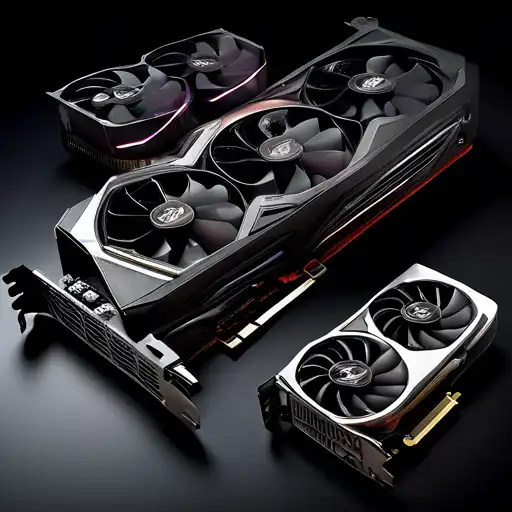Introduction to Choosing the Right GPU for Gaming
Selecting the right Graphics Processing Unit (GPU) is crucial for an optimal gaming experience. With the vast array of options available, it can be overwhelming to decide which GPU is the best fit for your gaming setup. This guide will walk you through the key factors to consider when choosing a GPU, ensuring you make an informed decision that enhances your gaming performance.
Understanding GPU Specifications
Before diving into the selection process, it's important to understand the specifications that define a GPU's performance. These include the core clock speed, memory size, memory type, and bandwidth. Each of these factors plays a significant role in how well a GPU can handle modern games.
- Core Clock Speed: Measured in MHz, this indicates how fast the GPU's core operates.
- Memory Size: More memory allows the GPU to handle higher resolution textures and more complex scenes.
- Memory Type: GDDR6 is currently the fastest, offering better performance than its predecessors.
- Bandwidth: This determines how quickly data can be read from or written to the memory.
Matching the GPU to Your Gaming Needs
Not all gamers have the same requirements. Casual gamers might not need the most powerful GPU, whereas competitive gamers will benefit from high-end models. Consider the types of games you play and their system requirements when selecting a GPU.
Budget Considerations
GPUs come in a wide range of prices. Setting a budget before you start shopping can help narrow down your options. Remember, the most expensive GPU isn't always the best choice for your specific needs.
Future-Proofing Your Purchase
Technology evolves rapidly, and today's top-tier GPU might not be as competitive in a few years. Look for features like ray tracing support and DLSS (Deep Learning Super Sampling) to ensure your GPU remains relevant for longer.
Compatibility with Your System
Ensure the GPU you choose is compatible with your motherboard, power supply, and case. Check the GPU's dimensions, power requirements, and the available slots on your motherboard.
Where to Buy and What to Look For
Purchasing from reputable retailers or directly from manufacturers can save you from potential scams. Look for warranties and customer support options when making your purchase.
Conclusion
Choosing the right GPU for gaming doesn't have to be daunting. By understanding your needs, budget, and the specifications that matter most, you can select a GPU that offers the best performance for your gaming setup. Remember to consider future-proofing and compatibility to make the most out of your investment.
For more tips on optimizing your gaming setup, check out our guide on how to build a gaming PC.
